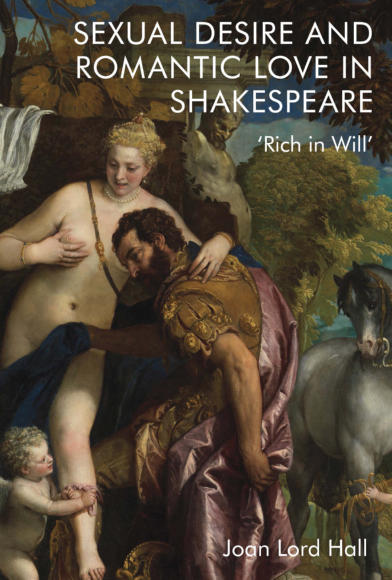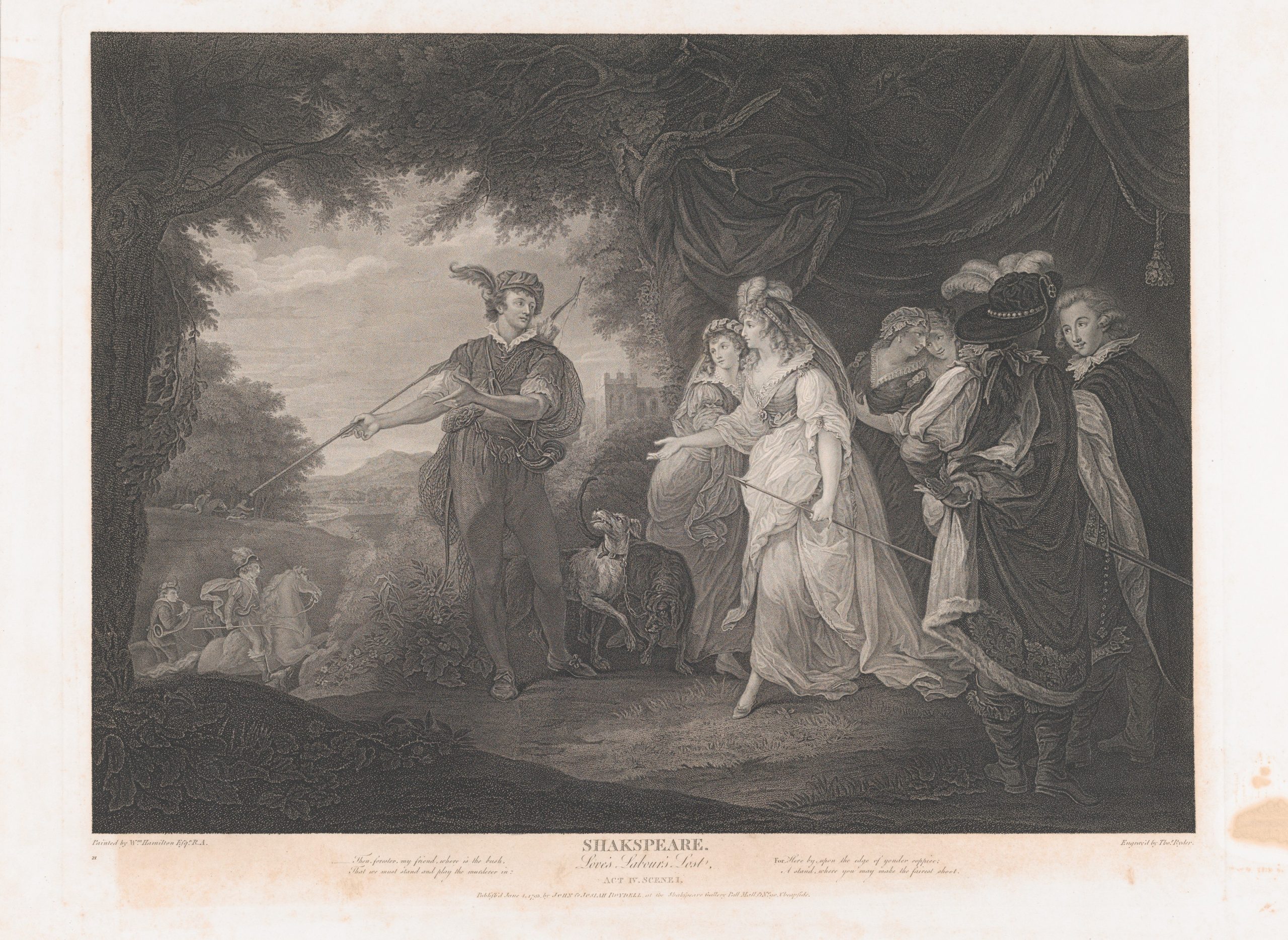
by Joan Lord Hall
What inspired you to research eros in Shakespeare’s work?
Knowing that I had taught Shakespeare for about 40 years and had authored several guides to his play, a friend provocatively asked me “Why don’t you write a book about sex in Shakespeare?” This planted the seed. Despite the growing number of books and articles on gender and sexuality in Shakespeare’s work, I felt that I could offer fresh insights. And since no critic had covered the whole of the canon, I decided to mine all 38 plays, plus the narrative poems and the sonnets, for their rich material.
I also wanted to consider the dark side of male sexuality within this wider dramatic context – how lust and the desire to subjugate females leads to rape, or attempted rape, not only in the poem The Rape of Lucrece but in several of Shakespeare’s plays. It seemed important, as well, to explore how Shakespeare exposes sexual desire within the family: the incestuous subcurrents in sibling relationships (Antony and Cleopatra as well as Hamlet) as well as intense mother-son and father-daughter bonds (Hamlet and King Lear).
What did you discover that’s original in Shakespeare’s treatment of this wide-ranging topic?
First, we need to remember that Shakespeare was living in a highly Christian society, which drew firm boundaries between lustful desire and committed love. Neoplatonic and Petrarchan literary conventions also downplayed the sexual component of romance in favor of spiritual, idealised love. In fact Shakespeare’s early poem Venus and Adonis mirrors this when Adonis insists on a strict separation of “lust” from “love.” Increasingly, though, Shakespeare’s plays questioned the conventional dichotomy between sexual desire and romantic love.
Does Shakespeare’s work succeed in reconciling sexual desire with romantic love?
I discovered there’s no clear linear progress toward synthesizing the two in Shakespeare’s drama. His Late Plays still pit bestial lust (Caliban in The Tempest, for instance) against chaste romantic love (Ferdinand and Miranda). But by the time the playwright composed Antony and Cleopatra (1608), he is celebrating the love affair between the Roman and the Egyptian as simultaneously a romance of mythological proportions and an intimate sexual partnership. By the end of the play their love relationship even offers a new model for marriage. In Chapter 6, I point out how by the early 17th century the older patriarchal model of wedlock, in which the husband controls his wife and her sexuality, was being challenged by the newer Protestant model promoting a more equal partnership between spouses. Sex was still de-emphasized, however, in favor of strong companionship. In Antony and Cleopatra Shakespeare suggests a more inclusive paradigm of marriage.
How does the book’s subtitle, ‘Rich in Will,’ fit into your exploration of sexual desire and romantic love in Shakespeare’s work?
I found that Shakespeare scholars haven’t fully recognized the semantic complexities of the signifier “will” in Shakespeare contexts. Often “will” goes beyond its primary meaning of “resolve” or “intention” to denote sexual desire or passion. Shakespeare cleverly exploits this secondary meaning, most notably in the “Will in overplus” celebrated in Sonnet 135 (“Whoever hath her wish, thou hast thy Will”) but also in his plays, which remind the audience how sexual desire (“will”) undergirds all romantic love relationships. “Affection” in Shakespeare’s work also signifies sexual passion rather than simple fondness, as with Beatrice’s “enraged affection” for Benedict in Much Ado About Nothing.
Were you surprised that Shakespeare explores “will” along the whole sexual spectrum, giving as much weight to same-sex as to cross-sex desire?
It’s usually accepted, from the evidence in the Sonnets of poet Will’s passion for the “fair” youth, that Shakespeare was bisexual. So it’s not surprising that the dramatist tends to destabilize gender distinctions and promote homoerotic attraction, especially in the middle comedies. The alternative title of Twelfth Night—What You Will—points to how an individual’s desire may flout the heterosexual norm. Through the convention of cross-dressing (boy actors dressed as girls disguised as males) the play engages the audience in the complications of same-sex attraction, even while couples are seeking traditional marriage. What is more surprising is that Shakespeare suggests how strong (even intimate) friendship between males can coexist with heterosexual marriage. Both The Merchant of Venice and Twelfth Night hint at this.
Do you think that your book will appeal to an audience outside the academy?
Yes, I do. It’s true that the book targets students of Shakespeare, from undergraduates to faculty. But nearly everyone finds eros and romance interesting, and educated readers are likely to be curious about how the greatest author writing in the English language explores these topics dramatically. What’s more, since Shakespeare’s plays treat issues germane to the LGBTQ+ movement, my study should appeal to this growing audience. Finally, because I make my case though close readings of the plays rather than adopting a theoretical approach, non- specialists should find this study accessible and jargon-free.
About the author
Joan Lord Hall, whose teaching of Shakespeare at the University of Lancaster and the University of Colorado spanned 40 years, has written several guides to Shakespeare plays for Greenwood Press. Her publication Sexual Desire and Romantic Love in Shakespeare: ‘Rich in Will’ for EUP is the culmination of her work in this field.

About the book

Get 30% off the paperback edition with discount code PAPER30
Analyses how far Shakespeare succeeds in reconciling two polarised areas in the early modern period: sexual desire, or will, and idealised approaches to romantic love
Beginning with how the signifier ‘will’ operates in Shakespearean contexts, this book deals fully with how Shakespeare’s plays treat the issue of rape and sexual coercion, and how far the plays reflect early modern views on the role of sex and love in marriage.
Don’t forget to sign up to our mailing list to keep up to date with all of our free content and latest releases!





